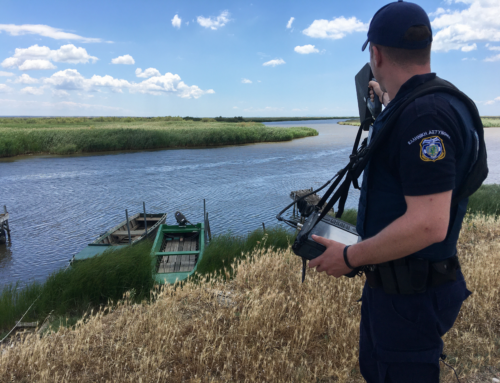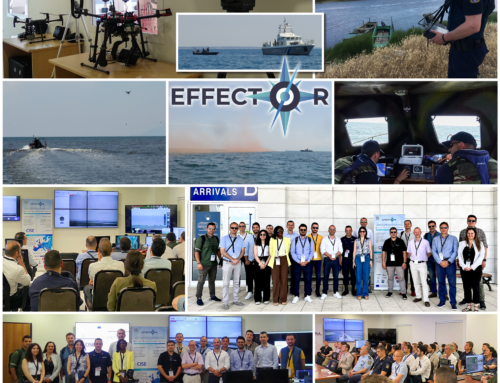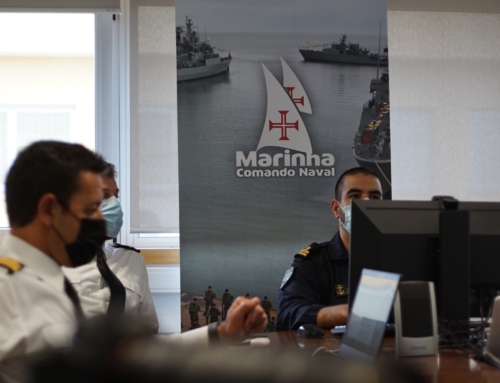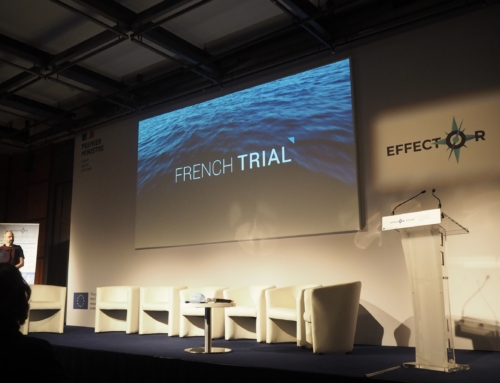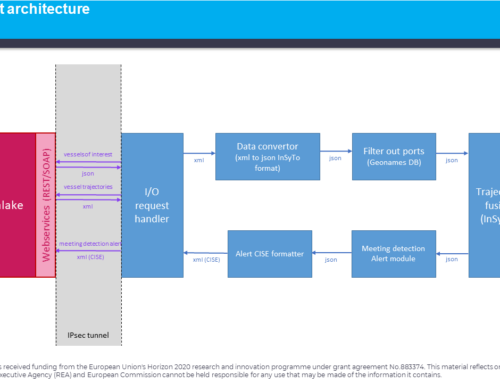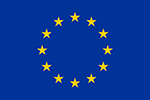Authors: KEMEA, PTN
The User Community is an essential factor in ensuring efficiency in creating and validating scenarios, metrics and trial selection, coordinating performance metrics, and validating results. The basic principle of EFFECTOR is to address the end-user information exchange needs of the operational maritime border surveillance and therefore it involves end users from the very early stage of the project in the development, deployment and the final evaluation of the trials.
Objectives
- Form the EFFECTOR Community of professionals focused on the goal of “innovation”, providing the benefits of an end-to-end interoperability demonstrator for information exchange and technology integration
- Develop community methods for promoting interactions
- Regulation of the user community with the participation of internal / external end users and external partners who are invited to participate in the initiative and associations of joint ventures with previous and ongoing initiatives in the field
Maritime Surveillance from the User experience and mutual trust building point-of-view
Maritime surveillance refers to a comprehensive understanding of all activities occurring at sea that may have an effect on the European Union’s and its Member States’ defense, protection, economy, or climate. Maritime surveillance is a critical transnational issue in the Mediterranean, encompassing safety, protection, and environmental aspects in the face of growing pressures from vessel traffic, mass tourism, climate change, illegal fishing, and pollution.
A maritime surveillance system, implemented at both national and transnational levels, is needed for better management of protection, security, and marine activities. Better knowledge and data sharing and management between institutional levels, as well as the participation of public and private agencies, universities, local governments, and people in their digital transformation, are both guarantees for improving the efficiency and response of existing structures.
Maritime surveillance must ensure the protection and security of maritime-related activities (vessel traffic, yachting, fisheries, aquaculture, tourism, energy, and so on) through maritime safety, which includes search and rescue, while also taking into account environmental threats and risks, which require a high degree of cooperation among various stakeholders to address. Maritime Surveillance can improve the effectiveness and efficiency of maritime transportation for users and businesses by addressing their socioeconomic needs and concerns. Via improved data access, it should also allow territories, towns, and people to establish instruments that integrate the marine environment and climate change into their risk management practices and responsibilities.
The Integrated Maritime Surveillance (IMS), which was approved in 2007, is one of the key pillars for the implementation of the EU Integrated Maritime Policy (IMP) and a useful tool for ensuring and safeguarding the long-term development of the seas and oceans, as well as their coastal zones, and thus leveraging and fostering Blue Growth. IMS may also be able to help countries incorporate Maritime Spatial Planning at different scales. Integrated Maritime Surveillance must provide authorities with the tools, roles, and procedures they need to share information or data as a guarantee of more reliable, affordable, and open systems that can better address organizational and integration issues.
Maritime surveillance has to be effective for all external users as well as allow all relevant users to develop instruments integrating marine environment and climate change into their risk management practices and responsibilities through to a better access to data. Integrated Maritime Surveillance needs to be made very carefully in order to tackle organizational and integration problems. Since the integrating maritime surveillance cannot be assessed alone it is a complex framework and thus it is recommended that future Integrated Maritime Surveillance in the Mediterranean Basin should be addressed according to the following perspectives:
- Setting up of a coherent approach mixing compulsory and voluntary data and information exchanges.
- Incentive the cooperation with pre-adhesion countries and ENP Countries in the scope of Integrated Maritime Surveillance domain.
Therefore, a better sharing and management of information and data between different institutional levels, the involvement of public and private bodies, universities, local authorities and citizens through their digital transformation, is the guarantee for improving the efficiency and response of existing systems and building the necessary mutual trust.
External End-Users Community as formed until today
More specifically under the scope of developing the EFFECTOR User Community, eighty invitations have been sent to Potential External Partners suggested by EFFECTOR’s End-Users. From those, 19 have endorsed EFFECTOR through a letter of support and 2 are expected to also provide their contribution based on the experience they have in the maritime surveillance domain. EU agencies, namely FRONTEX and EMSA, have already been contacted in order to start a fruitful cooperation under the scope of the project.
Finally, 7 EU-funded projects already support EFFECTOR and its actions by having participated in the definition of the end-user requirements and the operational scenarios of the project and by presenting their related to EFFECTOR work and findings to all upcoming project’s Events.
Analysis and Presentation of External Partners That Have Signed
So far from the seventeen proposed external partners, EFFECTOR has been highly endorsed by the below-mentioned entities:
- End-Users: Romanian Border Police, Montenegro Border Police, Border Police of Moldova, Montenegro Navy, Slovenian Maritime Administration, Albanian Maritime Administration, Department of Maritime Transport Policies at Ministry of Infrastructure and Energy of Albania, Civil Aviation Agency of Montenegro, and Bulgarian Navy.
- Industry Entities: GMV from Spain, Leonardo from Italy, EXUS from Greece, Székely Family and Company Ltd. from Hungary, Edisoft, Inovaworks and Critical Software from Portugal.
- Academic organizations: LAUREA from Finland, Faculty of Maritime Studies Kotor – University of Montenegro and Faculty of Electrical Engineering – University of Montenegro.
- External EU-funded Projects, namely: FP7 EUCISE2020 and H2020 ANDROMEDA, MARISA, RANGER, CAMELOT, COMPASS 2020 and METICOS.
Upcoming Actions Foreseen actions required for the User Community enlargement and external partners’ significant contribution and engaging in EFFECTOR include:
- the User Community relentless recruitment campaign to continue.
- preparations and invitations to the external User Community in order to participate in project’s initiatives like the Workshops and the Pilot Demonstrations that will take place in the project’s next period.
The 1st Workshop will be held at M8 – May 26th and invitations will be sent to all members of our User Community and to other potential partners as well, especially external end-users


